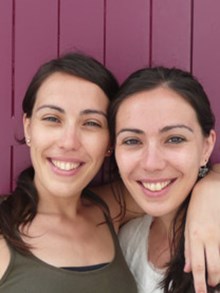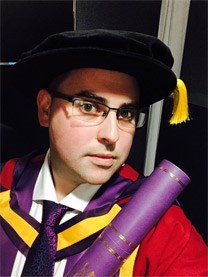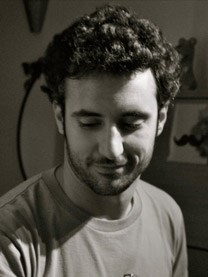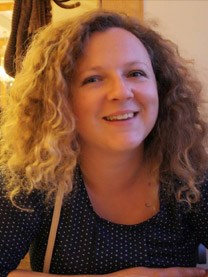Top Tips for a Successful Transition to a Postdoc Role
Advice and tips given by postdocs from all over the world.
| Introduction | The World is Your Oyster |
| Sell Your Soft-Skills | Sage advice from postdocs all around the world |
| Scout for A Supportive Supervisor | Tried and tested postdoc advice |
Introduction
A post-doctoral research position is an excellent opportunity to fully develop the skills acquired throughout your PhD research. Post-docs are the “engine” of every research department and are seen as dynamic, solution-oriented people. In my experience, working as a post-doc allowed me to make an impact in my area of research while mentoring the next generation of researchers. I was given the opportunity to determine the direction of scientific projects, by creating, monitoring and reviewing project plans. The most rewarding part was coordinating PhD and Master’s students’ activities for the successful delivery of these milestones. For me, the key to finding success as a post-doc was about finding the right balance between following a supervisor’s expert guidance and enjoying the freedom to independently advance the team’s research aims. The post-doc experience allowed me to not only become familiar with practical aspects of science, but also to learn how to design and plan experiments, how to function in an international team, and collaborate with external partners.
However, not all post-docs are exactly alike and transitioning out of studentship into leadership can be daunting. If you’re a prospective post-doc seeking to advance your career in academia, here are a few top tips for tackling the challenge.
Sell Your Soft-Skills
If you’ve lead multiple projects that entailed the development and translation of molecular techniques for further preclinical and potential clinical applications (like I did), then in addition to stating what you’ve done, highlight how you managed those projects on your CV. Include language that showcases your strategic thinking, as well as problem-solving skills that can set you apart from the next basic scientist in a similar subject area. Describing how you managed various aspects of a project, supervised students and ensured effective cross-functional teamwork shows that you can be a trusted leader.
Scout for A Supportive Supervisor
As you will have found doing your PhD, the relationship dynamic with one’s supervisor can make or break the post-doc experience. Being lucky enough to land in a department that happens to have a supervisor that you have the right “chemistry” with is great, but due diligence when deciding who to work with can be crucial. During the interview process, you should ask questions that will reveal your potential supervisor’s management style and mentoring capability. Lastly, inquire about what they can offer you in return for skills and experience such as career advancement opportunities and on-going learning initiatives.
The World is Your Oyster
The world’s top universities pride themselves on being global institutions and attracting talent from all over the world. This means that securing an international grant and looking for job opportunities outside of your home country can make you a very attractive candidate throughout your academic career. In my case, securing a Marie Skłodowska-Curie actions - Research Fellowship Programme grant was an excellent funding source for my research and further career prospects. Please bear in mind that applying for a competitive international fellowship can take six to nine months of preparation, so it is imperative that you start early!
But don’t just take it from me... below are some additional points of view that describe the post-doc experience from researchers based around the world.
Sage advice from postdocs all around the world
 |
My favorite Postdocs twins: Paula López Serra (left) and Lidia López Serra (right). “After obtaining the PhD, becoming a post-doctoral fellow means more responsibility but also the satisfaction of developing your own ideas, initiatives and demonstrate yourself as you are a real scientist.” – Lidia López Serra PhD, Spain “One of the most rewarding tasks for a post-doctoral fellow is mentoring students. From my point of view, it is a challenge to be part of the beginning of their research career, keeping in mind you will always be his/her first scientific reference.“ – Paula López Serra PhD, Spain |
 |
“Getting independence in my research is the most enjoyable part of the Postdoc role: finding a niche in the scientific literature, creating a project, matching it with what the team currently does and importing new techniques in order to develop yourself. That's what I really enjoy. Be prepared to manage and have science inputs in various projects. It is challenging but so exciting when the project takes off.” – Stephane Berneau PhD, France |
 |
“It might seem banal, but the ability to plan and design projects by yourself is not the only but surely the most exciting part while being a postdoc. Also, problem-solving skills are most important now than ever.” - Paolo Petazzi PhD, Italy |
 |
“You apply what you have learned. Do it exponentially, constantly increase your knowledge. Sometimes you merge different areas; you can be more creative and apply your ideas and manners of thinking. That is giving me a lot of freedom.” - Humberto Ferreira PhD, Portugal |
 |
“From my personal experience, I highly encourage everyone who aims to pursue a scientific career to do a postdoc. It certainly allows you to acquire new scientific skills, to discover and to get familiar with cutting-edge techniques.” – Julia Liz PhD, Sweden |
 |
“Being a postdoc, you play a primary role in communicating and coordinating research. Participating and presenting data will make you much more confident, and develops your soft skills.” – Gosia Koziol PhD, Poland |
Tried and tested postdoc advice
For those of you who are about to start your very first post-doc, below is some tried and tested advice from post-doc veterans:
-
Stay calm even if it’s late in the evening and the electrophoresis is STILL running those oh so important samples. Just breathe, carry on with the experiment and drink coffee to stay awake through the night. It happens to all of us sometimes. Some strategic planning ahead will help you avoid all-nighters once you know exactly how long processes usually take.
-
Do not panic if a queue of 3-4 students is waiting for you early in the morning to ask millions of questions that you do not know even how to start answering. They just can’t wait to see you- their postdoc who guides them further with their outstanding scientific projects! Engaging them in the problem-solving process will ease the pressure on you and make them feel involved instead of micromanaged.
-
Make a “to do list” to schedule and prioritize tasks based on their urgency, especially those regarding funding!
-
Think independently. Don’t wait for your supervisor to think for you. Take the initiative, and help other team members to conduct novel projects.
-
Attending conferences is one of the best networking opportunities and can build your reputation within the scientific community. Focus your efforts on attending big meetings: SfN, AACR or ISSCR.
-
Networking is essential. One example of how taking the initiative and making connections can get you noticed and may even lead to strategic collaborations was offered by Catherine Castillo, USA.
 |
“When faced with a lack of job opportunities and indecision about where my academic career was taking me, I initially joined existing university-affiliated societies that organized events in my general subject area. When none of them offered the face-to-face networking opportunities between academics and industry professionals, I decided to start my own organization that filled that gap. Now I have access to a number of corporate partners that are keen to support researchers in various ways.” - Catherine Castillo, USA |
Regardless of your subject area and the particular career trajectory that you embark upon, being a postdoc is a scientific journey. There is no such thing as taking a wrong step when you can look back knowing that you have learned something new and changed your surroundings for the better.
 |
Posted by Dr. Karolina Szczesna Senior Product Manager and Technical Support at Proteintech Ltd. |